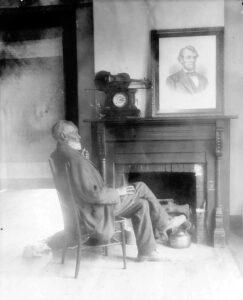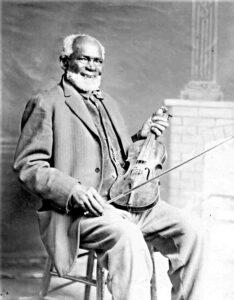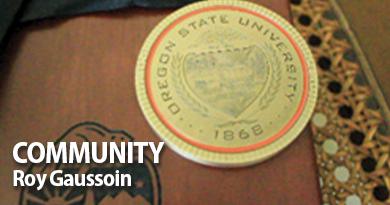Black History Spotlight: Louis Southworth
The Amazing Journey of an Enslaved Gold Miner to Successful Business Pioneer
By Oregon Black Pioneers | Photo credit: Courtesy Oregon Black Pioneers | Cover Illustration by Jeremy Davis

Louis “Lou” Alexander Southworth was a freed slave who became a successful business owner and homesteader. Lou Southworth was born into slavery in 1830 in Tennessee. He was given the surname of his enslaver, James Southworth, who in 1853 brought the 23-year-old Louis and his mother Pauline to Oregon.
James Southworth settled in Lane County, and sent Louis to Jacksonville to pan for gold on his behalf. Lou was allowed to keep a small portion of his earnings for himself. In 1856, Louis joined Colonel John Kelsay’s company of volunteers to fight in the Rogue River Indian Wars near the Oregon-California border. While Southworth is not listed in Kelsay’s Second Regiment muster rolls, records do indicate that he was wounded during a skirmish in either March or April of that year.

Benton County Hist. Soc. Museum
Although he was still enslaved by James Southworth, Louis moved to Yreka, California in 1858. There he made his livelihood playing the fiddle for local dancing schools. Between his gold mining earnings and his fiddle playing, Lou earned the $1,000 necessary to buy his freedom. Despite Louis making the payment to his owner, James Southworth circulated a petition in Lane County to protect “slave property” in a desperate attempt to allow slave owners to keep their enslaved laborers despite Oregon’s anti-slavery laws. James Southworth’s petition reached the Oregon State Legislature but was not adopted, ensuring Lou’s freedom.

In 1868, Louis moved to Buena Vista, Oregon, in Polk County, where he purchased land and established a blacksmith shop and livery stable. There, he married Mary Cooper in 1873 and became father to Mary’s adopted son, Alvin McCleary, a mixed-race child of Jamaican and Native American ancestry. Making use of the Homestead Act, the Southworth family acquired property just outside of Waldport, on the Oregon Coast. Beginning in 1880 Louis operated a scow on the Alsea River, ferrying passengers and cargo from one side of the river to the other.
On election day of that year, a major storm hit Waldport. Southworth famously rigged oil cans to his boat to provide extra flotation to allow him to ferry as many passengers as possible across the Alsea Bay and into town to vote on time.
Southworth operated his Alsea ferry for 30 years. Lou was known in town for his friendliness and generosity and was known affectionately to Waldport locals as “Uncle Lou.” He played fiddle at church and local events, and even donated a tract of land for Waldport to develop a new school where he served for a time as chair of the school board. During the summers Lou worked as a farm laborer near Philomath and Corvallis, helping with the hay and wheat harvests to earn money for winter supplies. He relocated to Corvallis permanently in 1910, and died there on June 23, 1917 at the age of 86, and was buried in the city’s Crystal Lake Cemetery.





